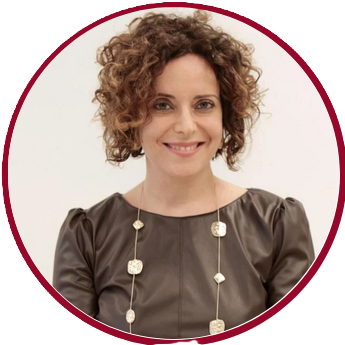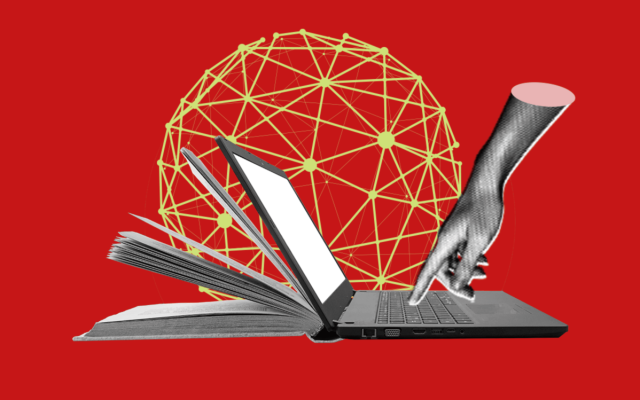Interview with Rosanna Ventrella, sole administrator of Sys-Tek
When someone makes an impression on you, you feel it right away, it's an immediate intuition. You understand instantly that this is the person (and the right company) and you understand why she has become a participating member of the Fondazione Mondo Digitale ETS, where you have been working for a long time. My colleagues and my director have always spoken about her enthusiastically, and I finally had the pleasure of meeting and interviewing her.
Rosanna Ventrella Grimaldi has a double surname because she recently added her mother's surname to her own (a question of equality). She is the sole director of Sys-Tek and manages a team made up of 60% women.
Sys-Tek is a benefit corporation specialising in IT consultancy and software development based in Turin, Italy. It has always been involved in social initiatives, providing training and economic support through volunteering. The company has chosen to become a B Corp and to be certified with the Next Index, a decision strongly supported by Rosanna, who firmly believes in active collaboration between the profit and non-profit sectors. This vision, which combines social commitment and economic development, is one of the reasons why Sys-Tek has become a participating member of the Fondazione Mondo Digitale ETS.
Rosanna got to know the Fondazione Mondo Digitale years ago, when we collaborated with Cna, of which she was president. Having always believed in the value of our slogan ‘Right to knowledge’, when the general manager Mirta Michilli asked her to become a participating member, Rosanna was flattered and promptly offered to host the FMD office in Turin at Sys-Tek's offices. Rosanna is a great supporter of initiatives that can bring concrete benefits to the territory, as demonstrated by the Ask&Hack event organised together with her [see the news item Ask&Hack Ventu-rhythm: code without barriers].
‘I hope that all companies can follow paths like these’, says Rosanna. Then, to my question about what the most important thing is that the Fondazione Mondo Digitale can do for society and for companies like Sys-Tek, she replies: ’You have excellent planning skills, a strategic vision, consolidated experience and expertise, and above all you have resources with high added value.’
‘I see that when you implement good practices and start designing, you manage to create important local networks. But above all, you have great credibility and dignity, and your projects are always successful. What do you need to do? You need to make yourself better known at a national level, reaching out to those areas that don't yet know you, and further strengthen your position within the education system. In this way you can truly become an organisation at the service not only of society and the country, but also of the business world.’
Our pleasant chat with Rosanna didn't end there. We talked about her personal experience, her commitment to women in STEM, and also about young people and how to promote the proper use of technology.
Rosanna thinks that technological progress is beneficial for mankind because it allows us to dedicate ourselves to activities with a higher added value and leave the more operational tasks to machines (like the human stamp-sorting machine she used to see at the post office when she went with her grandfather to collect his pension).
Talking to Rosanna is really interesting and so I asked her to give me some more of her time to answer a question about the phenomenon of hikikomori, young people who withdraw into themselves and have no more contact with the world. How can we tackle this problem?
Rosanna's answer is clear: ‘It's the measure that makes the difference. Technology should be used in the right way and in the right amounts. What we need to do is educate schools and families on the ethical and conscious use of digital tools. We need to learn to live with technology, reducing the time and ways in which we use it. Technology should be at our service to improve our quality of life, not to condition it.’
Then he adds: ‘When I think about today's kids, I feel a little nostalgic. When I was a teenager, I sometimes isolated myself and preferred to lock myself in my room to read Joyce and Ezra Pound. At 14 it's not entirely normal, but then I got out of that phase and opened up to the world. So I want to say to young people: don't be afraid to come out of your shell, value social relationships and use technology consciously, in the right measure. In an age of excess, we should approach all experiences with a critical mind and in small doses, as if they were pills’.

Interview by Elisa Amorelli, social marketing and communication coordinator


